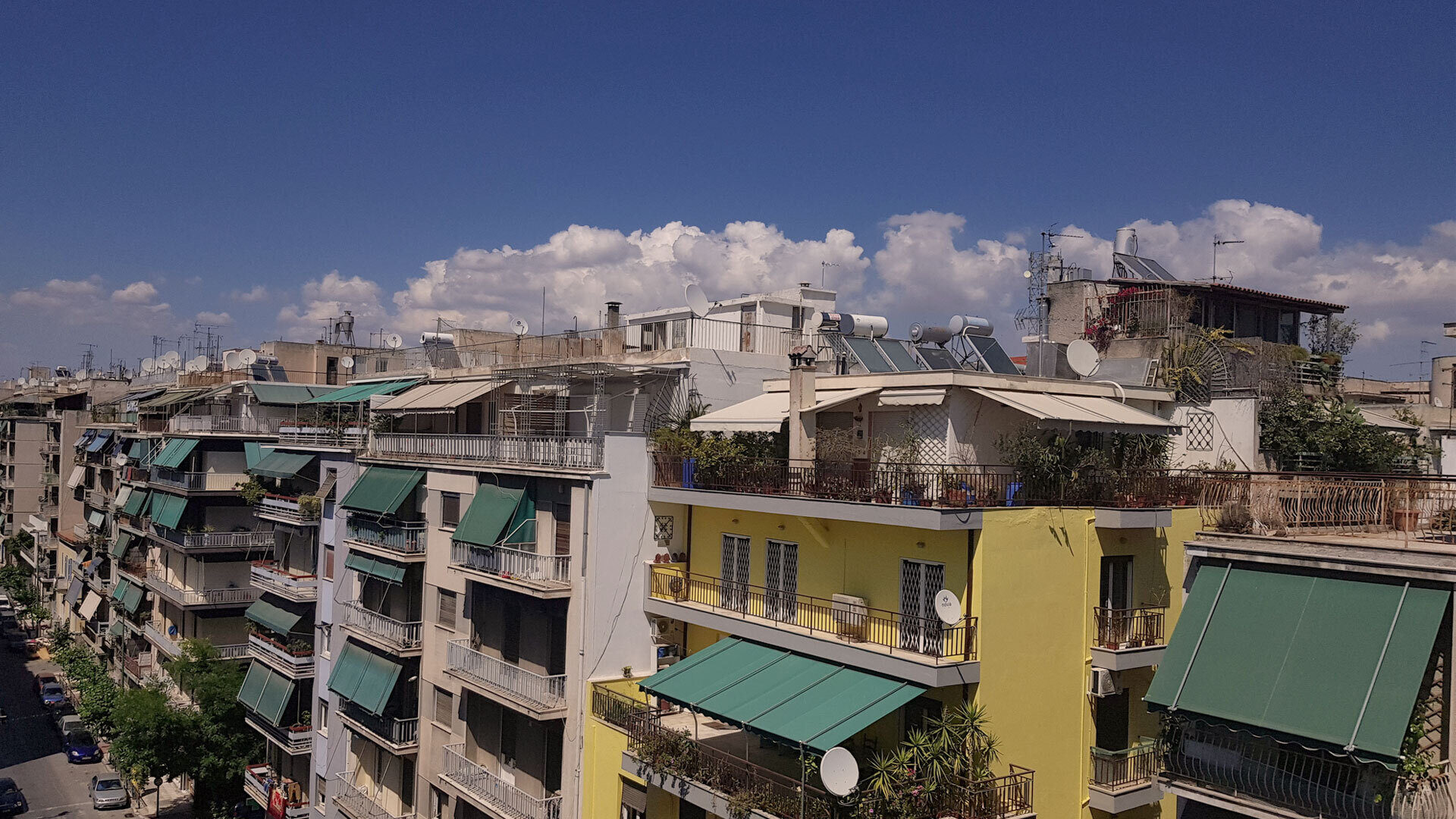
Executive Summary: For the right to affordable rental housing
Housing is a basic human need and an increasingly affected fundamental right, and as such, it’s proving to be a crucial social and political stake for growing parts of the population in Greece and across Europe. Since the mid 2010’s there has been a significant increase in the rental costs across the country, and in recent years, this practice has further intensified. This fact combined with the increased housing costs that weren’t followed by a corresponding increase in the people’s income, as well as with the high levels of unemployment and the degradation of the already inadequate social housing policies, makes access to social and affordable rental housing one of the most important issues that a large part of the population has to face.
Nevertheless, the particular, historically shaped, traits of housing and housing policy in Greece are often used as an excuse for the fact that there hasn’t been a deeper and more essential relevant debate or policies focusing on the issue of rents. Said traits include the long-standing high rates of owner-occupation – which made the issue of access to rental housing seem to concern a very small percentage of the population, usually the most vulnerable groups such as immigrants and younger people – and the central role of the family, through which the country’s inhabitants managed to meet their housing needs.
Still, as the dependence of a significant share of the country’s households on the private rental sector is growing along with their vulnerability, public intervention in order to transform this sector into an affordable, decent and alternative housing option is deemed an imperative. Lately (starting in spring 2022) and probably for the first time in many years, Greece’s main political forces are formulating political discourse on the housing issue. However, a key prerequisite for the success of any such effort is an understanding of the root causes of said problem.
The increase in rental prices, on the one hand, is due to a decrease in the supply of rental housing, that in turn is caused by the disinvestment and inactivity of the construction sector during the financial crisis, the use of part of the housing stock as tourist accommodation, the increase in speculative investments in housing, and a series of policies aiming to attract investment capital to the real estate sector, so a sum of practices that when added together, withdraw a large part of the housing stock from the long-term rental field.
On the other hand, the demand for rental housing is currently increasing mainly due to the lack of alternative housing options that are linked with transformations in some of the characteristic traits of housing in Greece, including the inability to access bank loans, the gradually declining capacity of the family to maintain its role as a key pillar of the intergenerational housing strategy, and the absence of a social or regulated rental sector.
This issue doesn’t exist exclusively in Greece, but it is becoming clear across Europe that the policy of market liberalisation and the decrease of public investment in housing have led states to a dead end. EU recommendations and coordination efforts have intensified after 2020, and significant public interventions are taking place in several European countries and cities. These include a wide variety of measures such as: rent control and regulation in Barcelona and the Netherlands, regulation of short-term leases in Austria, landlord-tenant mediation services and incentives for landlords and investors in France, support for social housing providers in Austria and the creation of tenant associations in Germany.
The present Policy Paper’s essential stance is that the “invisible hand of the market” cannot keep rent prices low and thus ensure access to affordable rental housing for all, something which requires a coherent and decisive public intervention and institutional regulation. The public intervention referred to here cannot be limited to emergency measures limited to specific social groups, i.e. to the most financially deprived. What is needed is a systematic support policy, designed in a way to address broad population groups.
In the same direction, instead of fragmentary measures, there is a need for a comprehensive set of public interventions in the housing sector, both immediate and long-term. These policies should complement each other and work in such a way as to mitigate any negative effects on the rental housing market, strengthen the landlords’ incentives and, above all, make housing affordable for those who rent.
More specifically, such interventions could be:
Rent subsidy, a measure that exists but needs to be extended so as to cover a wider range of beneficiaries and housing costs.
Rent control and regulation, which is an immediate intervention in order to contain prices, which can be temporary and versatile in its application. At the same time, it requires continuous monitoring in order to avoid creating two-speed markets.
Regulation of short-term leasing, through a series of measures and mainly through the Joint Ministerial Decision as per Law 4472/2017, but only after all the necessary adjustments are made, so it can be efficient in the restrictions it sets and also in order to include the changes that have taken place in the short-term lease market since the Decision was legislated.
Control investment and financialisation trends in the housing sector, in order to limit short-term and opportunistic investments and to create a secure framework for lower yielding investments (which have so far been a characteristic feature of the Greek housing market), as well as for the stable long-term amortisation of capital in a way that would facilitate the involvement of smaller investors, the public sector and social and solidarity economy actors.
Support social and affordable housing in the existing stock, through two different mechanisms, such as a supported housing provider, and/or an intermediary. To this end, it is important to adopt incentives for landlords and to pursue programme partnerships with larger-scale property owners, such as the public sector, banks, foundations, the Greek Orthodox Church, etc. In this case, there has been some positive experience that’s already been gained through recent housing interventions such as the ESTIA programme.
Construction of social and affordable housing from scratch, a suggestion which although it is considered to be challenging, has significant scope for development. Such a project requires the development of a specific framework for the construction and distribution of housing by non-profit public institutions and social and solidarity economy actors.
Tenants’ protection and empowerment through the development of specific tools that will allow the systematic monitoring of the rental sector, the establishment of minimum standards of housing suitability, the creation of an institution that would be able to act as the “tenants’ advocate”, the participation of tenants in the evaluation and designing of the institutional framework and policy tools.
An essential prerequisite for all the above is sufficient funding, the involvement of various public administration levels, especially within Greece’s municipalities, as well as administrative infrastructure, institutional tools and adequate scientific staffing of the bodies that will undertake the concretisation and implementation of each policy intervention measure.


